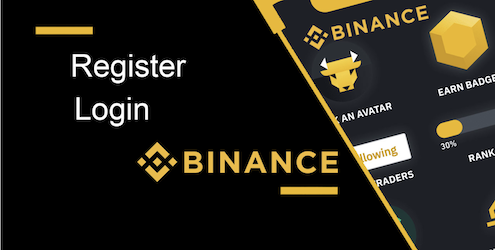In spite of President Bola Ahmed Tinubu’s repeated assurances that the subsidy has been removed, Daily Trust’s investigation reveals that the federal government disbursed N169.4 billion as subsidy in August to maintain the pump price at N620 per liter.
Numerous reports have hinted that the ongoing price stability, despite the deteriorating exchange rate and international crude prices exceeding $95 a barrel, suggests a reemergence of the subsidy.
A document from the Federal Account Allocation Committee (FAAC), accessed by our reporter, exposed that in August 2023, the Nigerian Liquefied Natural Gas (NLNG) remitted $275 million as dividends to Nigeria through NNPC Limited. NNPC Limited utilized $220 million (equivalent to N169.4 billion at N770/$) from this sum to cover the PMS subsidy. Subsequently, NNPC withheld $55 million, acting against the law.
This revelation by FAAC strongly indicates the return of the subsidy, with NNPC now utilizing NLNG dividends to fund it. Former President Buhari left the country with the highest petrol subsidy expenditure in Nigeria’s history.
According to reports from the Nigeria Extractive Industries Transparency Initiative (NEITI) analyzing the oil and gas industry from 2015 to 2020, the cost of petrol subsidy amounted to N1.99 trillion. Additionally, reports from the Nigerian National Petroleum Corporation (NNPC) to the Federation Accounts Allocation Committee (FAAC) showed that the subsidy cost N1.57 trillion in 2021 alone and another N1.27 trillion from January to May 2022.
Consequently, the government budgeted N3 trillion to cover petrol subsidy costs from June 2022 to June 2023. Summing up these costs, during President Buhari’s tenure, the government spent a total of N7.83 trillion on petrol subsidies.
Considering the dynamics of the global oil market, Brent crude surpassing $95 per barrel and the naira depreciating against the US dollar at the black market, doubts are raised regarding Nigeria’s abolition of petrol subsidies.
At the time of this report, U.S. West Texas Intermediate crude futures had risen by over 1% to $92.46 per barrel, while the international oil benchmark, Brent crude futures, breached the $95 per barrel mark.
The recent hike in crude oil prices was anticipated to drive up gasoline costs. However, the decision by the Federal Government to maintain the gasoline price at N617/liter indicates a quiet reinstatement of the subsidy on Premium Motor Spirit.
Furthermore, the rapid depreciation of the naira in Nigeria’s black foreign exchange market and the price ceiling on gasoline have posed challenges for marketers. Towards the end of August, PMS was trading at $1,030.11 per metric tonne in the international market, compared to around $859.25 in July when NNPC increased the pump price to an average of N617 per liter, signifying a 19.88% increase.
The exchange rate was N820/$ in July but has now reached N920/$, indicating a 12.19% increase. The crude oil price was $78.50 per barrel in July but rose to $88.50 per barrel in the last week of August, reaching $95 thereafter.
In July, the price per liter at the international market was $0.641, which rose to $0.792 in the last week of August. Consequently, the landing cost of PMS is approximately N728.64 per liter, compared to the N529 it was in July.
Additionally, factoring in freight costs, lightering costs (STS), distribution margin, ancillary costs by the Nigerian Midstream Downstream Regulatory Authority (NMDPRA), Nigerian Port Authority (NPA), Nigerian Maritime Administration and Safety Agency (NIMASA), as well as marketers’ margin, the total stands at about N90 to N105.
MOMAN, which had been providing regular pricing updates, had suspended it. A source within the organization stated that there was an instruction not to share the update due to the government’s declaration of no price increase.
Regarding how the Federal Government planned to sustain N620 per liter, the $3 billion crude repayment loan announced by the Nigerian National Petroleum Corporation (NNPC) Limited with the African Export-Import (Afrexim) Bank was intended to provide the federal government with the necessary dollar liquidity to stabilize the Naira.
Otegra Ogra, SSA to President Tinubu, mentioned that the loan would aid NNPC Ltd. in prepaying taxes and royalties. A strengthened naira resulting from this initiative was expected to reduce fuel costs. However, the loan reportedly stalled as other lenders, expected to participate in the syndicated transaction, withdrew.
Afrexim was initially set to contribute only $250 million to facilitate the involvement of other lenders, as they were already heavily exposed to Nigeria and had obligor limits. Daily Trust’s investigation revealed that the Central Bank of Nigeria (CBN) gross reserves did not exhibit an increase suggesting the receipt of the $3 billion. The FX reserve had decreased by 0.2% to $33.68 billion since the announcement on August 16.
Investigation by Daily Trust unveiled that the decision to disburse N169.4 billion was sanctioned at a high-level government level, as disclosed by a senior government official. This payment was viewed as necessary to avert a severe crisis, considering that the public could not endure further depreciation in pump prices.
Additionally, the investigation disclosed a subtle agreement with oil marketers to maintain the current price until market balance could be restored, in line with the Dangote refinery production and loan resolution. Stability is anticipated once these aspects are resolved.
Experts chimed in on the situation. Benneth Korie, the National President of the Natural Oil and Gas Suppliers Association of Nigeria (NOGASA), expressed concern about the prevailing sectoral developments, emphasizing that the price of PMS would indeed rise commensurate to the increase in the dollar price.
Dr. Wisdom O. Mogbolu emphasized that removing the subsidy without a functional refinery and stable FX was impractical. He highlighted the need to fix the system rather than burdening the masses.
Akin Akinrinade, Chairman of the Independent Petroleum Marketers Association of Nigeria (IPMAN), Ejigbo Satellite Depot, stressed the significance of short-term naira stability to fulfill the government’s promise, as rising dollar prices would lead to increased petrol costs. Government intervention to ensure naira stability is crucial in this regard.


